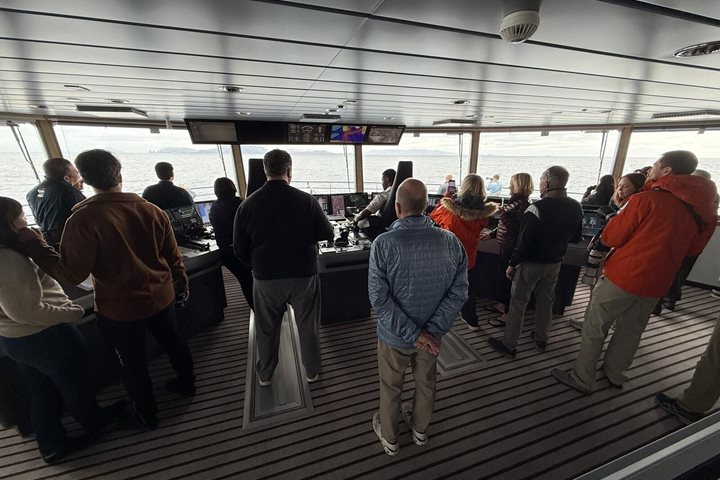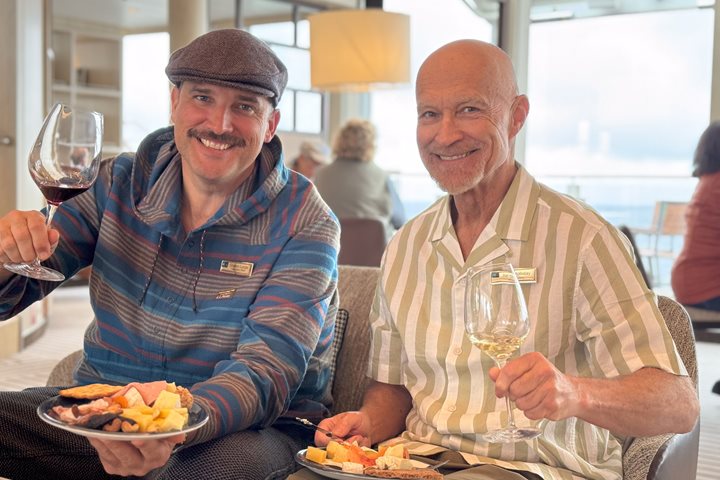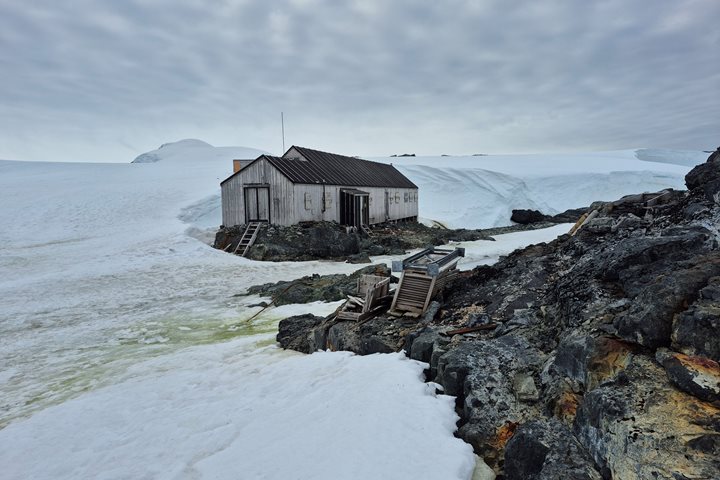There was a sea of expectations for our first day in Antarctica on this last day of the year. As we rode out a better-than-average Drake Passage, we encountered a group of Antarctic Type A killer whales in open water some fifty miles out from the South Shetland Islands, the archipelago that serves as a frontier to the Antarctic Peninsula.
On board with us on this voyage, we are privileged to have some of North America’s top educators, three Grosvenor Teacher Fellows who share their expectations for our upcoming Antarctic experiences with us here.
Introduction and mentorship by Steven Zeff, Naturalist
We are at the bottom of the world. Or are we? Surrounded by the world’s most pristinely kept ecosystems, we are breathing in possibly the cleanest air we’ve had in our lungs. Clear, cool, blue water wraps around our ship, and its inhabitants surprise us with every blow, jump, and dive. Rolling waves and snaps of sea ice keep our heads on a swivel. The stillness of this place and the horizons of white bring feelings of peace and ease. We are small, living creatures in a world full of evolutionarily diverse inhabitants. As a Grosvenor Teacher Fellow selected in 2020, the anticipation of visiting Antarctica has been building for three years. Our first landing was exhilarating and unexpectedly overwhelming. As I looked back to National Geographic Explorer, I was able to accept my small place at the bottom of the world. I am an observer, a thinker, a daughter, a teacher, and a sharer. I am a speck of stardust in this massive world. Feeling this way is humbling and freeing, and it makes me think that geographically we may be at the bottom of the world, but in all honesty, we are on top of it.
Andrea Smola, Grosvenor Teacher Fellow
Wildlife sightings were high on my list of expectations for this expedition. I had no idea those sightings would cut into my sleep schedule, however. Today started with an early morning wake up call to spot killer whales at the front of the ship. I quickly jumped out of bed, brushed my teeth, grabbed my jacket and phone, and ran up to the bow. I joined my fellow travelers in the Antarctic air and gazed into the Drake Passage to hopefully catch a view of these amazing creatures. Luckily, within minutes of getting outside, they decided to surface near the ship. The sense of beauty, the gravity of the moment, and the overwhelming gratitude for the experience moved through me and others witnessing these majestic creatures. A sense of excitement and wonder about what we would see next kept my adrenaline running all day.
Vickie Obenchain, Grosvenor Teacher Fellow
I'm sure my expectations were the same as most. Obviously, I've seen the nature documentaries, magazine spreads, and Lindblad's gorgeous social media. I "expected" penguins; our landing on Barrientos Island was a stunning reminder of the difference between intellectual knowledge and the truly visceral impact of experiential knowledge. These moments watching penguins waddle, hop, squawk, screech, flipper fight, and nurture were incredibly powerful when bolstered by the sounds, smells, and feel of the sharp winds. I selected this image of a gentoo penguin with a chick and egg as a representation of the extremes of Antarctica - such tenderness in the face of such harsh circumstances. I'm really excited about the challenge of bringing back this experience as concretely as possible to my students.
Kimberly Boyce, Grosvenor Teacher Fellow









